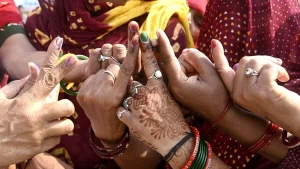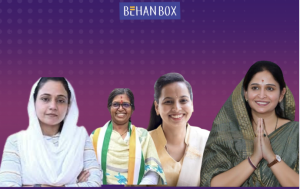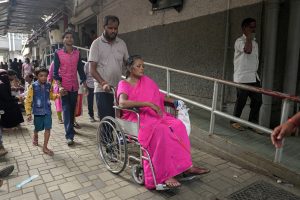More than half (57.6%) of working women in rural Maharashtra are self-employed with four in ten being unpaid helpers. The proportion of women engaged in self-employment has increased in both rural and urban areas, which means that they are relying on low quality employment.
Over the last seven years, the proportion of women engaged in agriculture has decreased from 65.5% to 59.03%. The precarity of women in rural and agriculture based jobs has increased too in the aftermath of Covid-19. A paper based on MAKAAM surveys found that the pandemic led to food insecurity, loss of farm incomes, decline in employment opportunities and increased debt traps for single women farmers.
Women sugarcane cutters face a different kind of precarity. Women like Gangabai Prakash Shingare, 40, who has been working as a sugarcane cutter with her parents since age 7, are having to having to undergo forced hysterectomies due to back breaking work in the fields ranging from 18-20 hours a day without any access to resources that can ensure menstrual hygiene – water, toilet, sanitary pads, privacy, or even time.
Read the story here
This is pushing them into a precarious debt trap without the much promised social security schemes such as EPF, health insurance, life insurance and insurance for their livestock. In 2019, the government of Maharashtra set up the ‘Gopinath Munde Ustood Kamgar Mahamandal’, a board for the welfare of the sugar cane cutters, primarily to address the issue of hysterectomies of women cane cutters. 5000 cane cutters received identity cards issued by the board but no schemes are being provided yet.
Read the story here.
As of August 2024, women agricultural workers in Maharashtra earned around Rs 273 per day. Those engaged in ploughing or tilling, a task largely done by men, earned the highest wage.
Women labourers engaged in non-agricultural work earned the lowest at Rs 212 per day. Those engaged in sweeping and cleaning were also among the lowest earners. Kavita Khomane, a public toilet cleaner in Mumbai, earns 10,000 to 12,000 a month for working more than 16 hours. She also needs to spend money out of her pocket for cleaning materials as they are not provided by the BMC. A March 2019 study of 115 safai karmacharis in the state found that 75% of the women were hired based on their caste background.
Read the story here.





